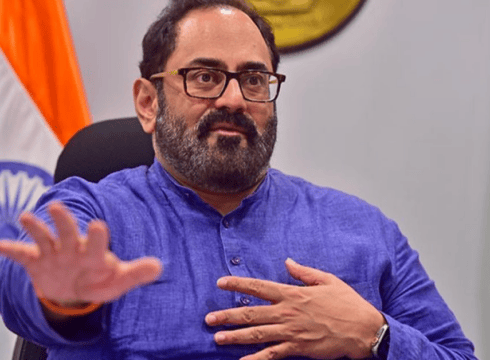While conceding that the online gaming industry was unhappy, the MoS said that terming the tax levy as ‘unconstitutional’ was ‘totally wrong’
Under fire for the flat 28% GST, the minister also said that the move to levy the tax was the brainchild of the GST Council and not solely of the Government of India
Last week, more than 100 gaming companies wrote an open letter to the government to roll back the 28% GST
Inc42 Daily Brief
Stay Ahead With Daily News & Analysis on India’s Tech & Startup Economy
Minister of State (MoS) for Electronics and Information Technology Rajeev Chandrasekhar on Monday (July 17) said the government would urge the GST Council to reconsider the 28% tax regime for real-money gaming platforms.
“We will go back to the GST council and maybe request their consideration on the facts of the new regulatory framework,” said Chandrasekhar at the CNN-News18 Townhall in Delhi.
While conceding that the online gaming industry was unhappy, the MoS said that terming the tax levy as ‘unconstitutional’ was ‘totally wrong’.
Under fire for flat 28% GST, the minister also said that the move to levy the tax was the brainchild of the GST Council and not solely of the Government of India. He alluded to the fact that the council was made up of state governments and their respective finance ministers who have formulated the goods and services framework.
“Goods and Services Tax (GST) Council is not the Government of India. The council is represented by all state governments. It is a federal organisation. State governments and finance ministers have come together and created a GST framework. That is a consequence of three years of their work. While we may quibble with the findings, we have to recognise the process of creating a framework has started in January 2023,” he added.
Chandrasekhar also said that the country was in the nascent stages of building a sustainable and permissible online gaming framework, adding that it was better to slowly progress and evolve such frameworks.
The comment follows the council’s move to impose 28% GST on full face value, without any distinction between games of chance and games of skill. The aftermath saw terse responses from the industry with many saying that the move would have disastrous consequences that could make the entire online gaming industry disappear.
Chandrasekhar had previously said that the decision to tax online gaming was a well-thought-out preliminary decision by the GST Council.
Last week, more than 100 gaming companies, including Nazara, MPL, and WinZO, wrote an open letter to the government urging it to roll back the 28% GST.
The additional tax burden could eat into their margins and hit user numbers. Additionally, the startups also claimed that the move could force companies to reduce spending and result in significant job losses.
Many also claim that the move could drive Indian users right into the arms of offshore gaming platforms, which are not required to adhere to local norms.
With the government now opening up channels for talks with the gaming industry, much is at stake for the homegrown players.
India’s gaming space has exploded in the past few years, largely on the back of cheap internet and smartphones. As a result, the number of gamers in the country surged from 450 Mn in FY21 to 507 Mn in FY22. The market size of the homegrown gaming industry is said to have crossed the $2.6 Bn mark in FY22 and is projected to reach $8.6 Bn by FY27, according to a report.
With funding winter on the horizon, startups also fear that the new tax regime would lead to investors further distancing themselves from the ecosystem.
As per Inc42 data, Indian gaming startups raised $349 Mn in 2022, down 80% YoY from $1.74 Bn in 2021.
{{#name}}{{name}}{{/name}}{{^name}}-{{/name}}
{{#description}}{{description}}...{{/description}}{{^description}}-{{/description}}
Note: We at Inc42 take our ethics very seriously. More information about it can be found here.


